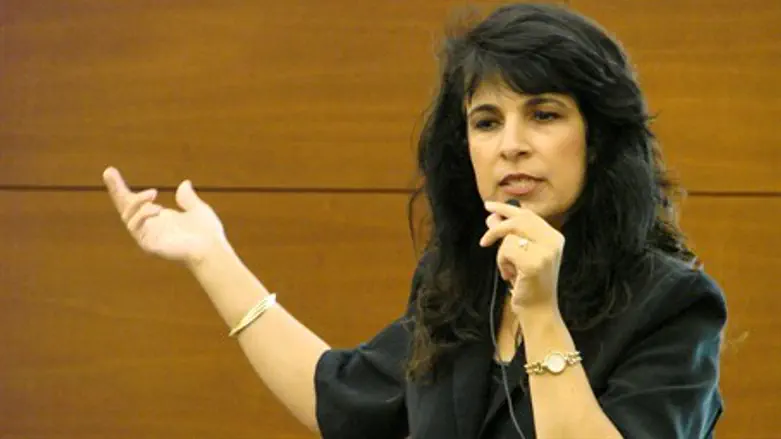
Legal rights organization Shurat HaDin-Israel Law Center has sent warning letters to eleven banks believed to maintain frozen accounts for Iran, they announced Wednesday, advising them that the funds are still restrained for the benefit of terror victims who hold unsatisfied judgments against the Islamic Republic.
The letters caution the American branches of the foreign banks that the funds in the accounts may not be transferred despite the anticipated lifting of financial sanctions by the Obama Administration.
The accounts are believed to hold up to $100-150 billion in frozen oil revenues currently restrained under the sanction regulations in overseas banks.
“You are hereby warned that all accounts maintained by your financial institution at any of its branches in the name of Iran, the Central Bank of Iran, the Naftiran Intertrade Company, the National Iranian Oil Company, the National Iranian Tanker Company or any other agency or instrumentality of Iran are restrained and subject to a lien in favor of my clients under United States law," the letter states.
Although Iran negotiated to have sanctions lifted and funds returned, the accounts in fact have now been blocked by virtue of a “Citation to Discover Assets” (“Citation”) which was issued against Iran on October 26, 2015 in the Rubin v. The Islamic Republic of Iran case in the federal district court for the Northern District of Illinois.
Long-standing campaign
The effort to continue to restrain the accounts is part of the terror victims’ ongoing legal campaign to collect millions of dollars in outstanding judgments from Iran over terrorist attacks perpetrated by Hamas and Islamic Jihad in which US citizens were killed and injured. Iran has been found liable in numerous federal court cases of providing material support and resources to the Islamic terrorist groups.
The Rubin plaintiffs are the victims and families of five U.S. citizens severely injured on September 4, 1997 in a triple Hamas suicide bombing at the Ben Yehuda pedestrian mall in Jerusalem. The families are represented by Robert J. Tolchin, Esq. of New York and Shurat HaDin director Nitsana Darshan-Leitner of Tel-Aviv.
On September 10, 2003, the District Court in Washington, DC District of Columbia entered a judgment in their favor, against Iran, awarding the families $371,500,000 in damages against Iran finding it financed and trained the terrorists.
Since that date, attorneys for the terror victims have endeavored to locate and execute against Iranian owned assets. However, twelve years later, the judgment remains mostly unpaid.
Early on, attorneys for the victims registered the Rubin judgment in the Northern District of Illinois because it had learned that certain valuable Iranian antiquities were in the custody of the University of Chicago and about to be returned to Tehran. After the families moved to seize the ancient Persian artifacts, Iran took the unprecedented step of retaining a local Illinois attorney and appeared in that turnover proceeding to contest the plaintiffs’ judgment enforcement efforts, thereby subjecting itself to being served with court papers in the US through its local counsel.
This was a highly unusual development as outlaw regimes, like Iran, do not recognize United States’ courts and rarely if ever actually acknowledge American lawsuits, making it extremely difficult to serve the Iranians with United States legal documents.
The Illinois Citation is a powerful tool that enables judgment creditors to freeze and place a lien on the judgment debtor’s assets after providing notice. According to the plaintiffs’ Citation, Iran is prohibited from making any transfer of any property belonging to it to which the Islamic Republic may be entitled or which may become due to Iran until the time a further order of the court is given.
The foreign banks that received the warning letters notifying them of the Citation served on Iran, some of which have local branches in Illinois, are also prohibited from transferring these Iranian assets. If the banks disregard the Citation, then they could themselves be liable for aiding and abetting a fraudulent transfer under America law.
Shurat Hadin: on the legal front lines
Shurat HaDin has been a vocal opponent of releasing any frozen Iranian property - including bank accounts pursuant to the recently approved nuclear deal with Iran. The organization notes that Iran owes American terror victims more than $43 billion in unsatisfied court judgments that it has vowed it will never pay. Moreover, Iran has publicly pledged that it will utilize the funds slated to be released under the deal to bolster terrorist organizations such as Hezbollah, Hamas and Islamic Jihad.
“We are demanding that these foreign banks recognize the citation we served and continue to restrain these Iranian accounts until the court can order them to be turned over to the terror victims," Darshan-Leitner stated Wednesday. "The $100 billion in frozen funds is the last leverage the families have to compel Iran to satisfy their judgments."
"If you release these funds, you erase all hope for the families of ever getting a measure of justice against this outlaw regime," she continued. "The law requires the banks to continue to block the accounts despite whether or not the White House cancels the sanctions that originally froze them."
"We are warning the banks that if they ignore the citation and release the funds back into the hands of the Islamic extremists in Tehran, they themselves will obligated to compensate the victims for their unsatisfied judgments.”
